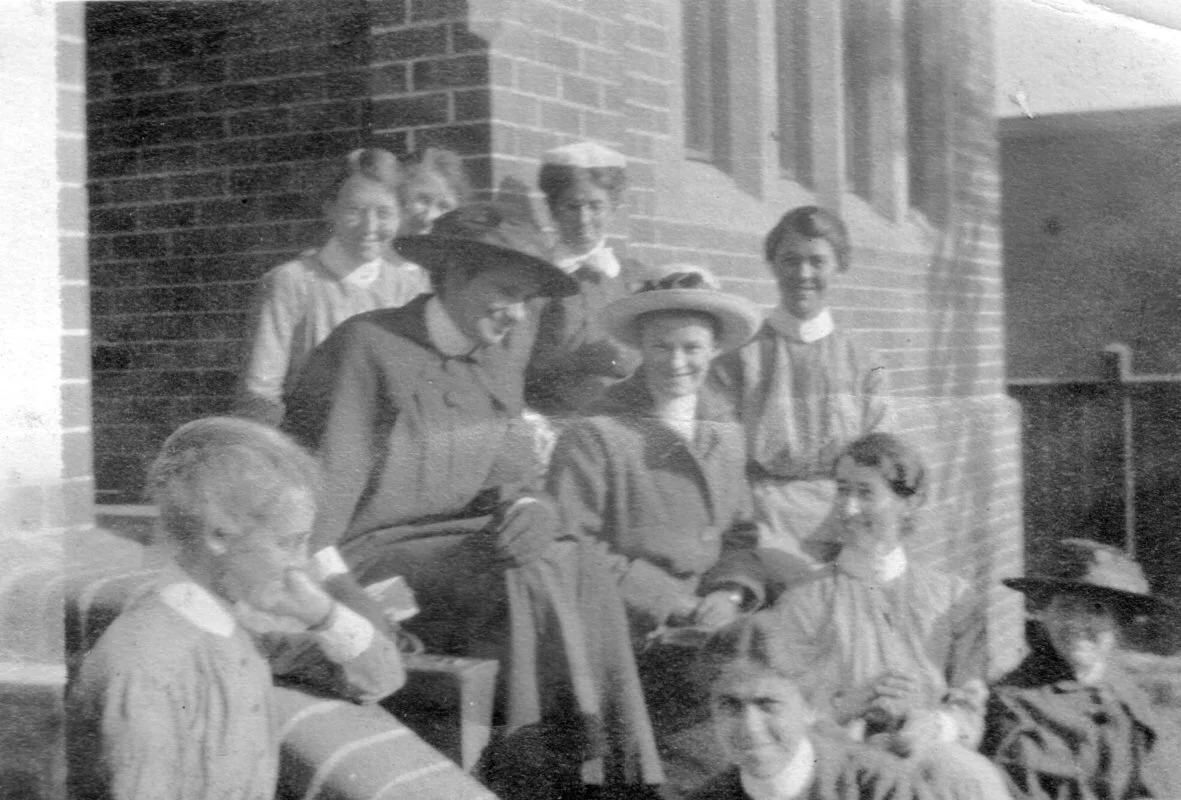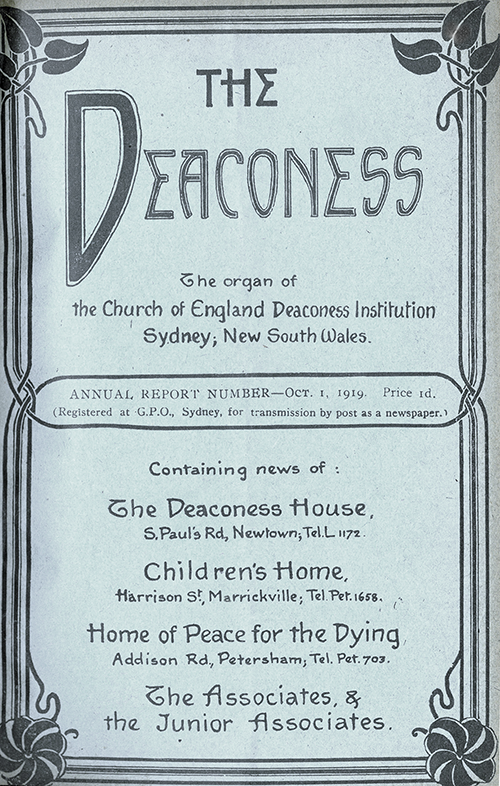“A bond of union and sympathy”: 100 years ago, Deaconesses battled the Influenza epidemic
— 19 June 2020
They didn’t have Zoom. But the Deaconesses in Sydney were well prepared to care for those around them during the great “Spanish flu” of 1919. Despite a swift quarantine response in October 1918 across the country, cases of Spanish flu began to appear in Australia in early 1919. NSW was the first state to declare an outbreak on 27 January 1919. About 40 per cent of the population became ill and around 15,000 died as the virus spread. Though it was less than a quarter of the country’s 62,000 death toll from World War I, Australia’s death rate of 2.7 per 1000 of population was one of the lowest recorded of any country during the pandemic. Nevertheless, up to 40 per cent of the population were infected, and some Aboriginal communities recorded a mortality rate of 50 per cent.*
For the Deaconesses, ‘the influenza epidemic’ meant bush work had to shut down, visitors at the children’s home kept away, home visits became dangerous, donation drives and meetings cancelled, and a new wing on the Home of Peace for the dying had to be built to contain more beds, forming part of a new Hospital. And yet the Deaconesses remained faithful and grateful for each opportunity God gave them to serve and provide for others, in the faithful ways God had provided for them.
Thankfully for us, they also recorded their experiences through the lens of their faith. The following highlights are taken directly from the Church of England Deaconess Institution, 1919 Annual Report:
Early Deaconesses, around 1918
In no institution can there be a greater realisation of the blessings that peace can bring to the world. Has not all our work been touched by the wreckage of war? What numberless homes have we not seen saddened, full of sorrowful, anxious, broken hearts; we have seen broken homes too, and numberless problems very difficult to ravel out and solve. These still continue though peace has come, for many of the wounds of war can never be healed. Still, hope is in the air, for home love is seen on many sides, welcoming dear ones back from the fray, and as our Deaconesses go in and out amongst the sorrowful and the joyful, they seek to lead men and women, and boys and girls too, to acknowledge and worship again the Prince of Peace, Who alone can help us to work out the blessings of the peace He came to give the world.
“as our Deaconesses go in and out amongst the sorrowful and the joyful, they seek to lead men and women, and boys and girls too, to acknowledge and worship again the Prince of Peace, Who alone can help us to work out the blessings of the peace He came to give the world. ”
Our beautiful home has continued to justify its existence during the past year. Every new visitor admires it, and to the younger ones the house itself offers an invitation to come and join our ranks, which we pray may be the result in not a few instances.
Deaconesses and students have been working regularly in eight of the largest and most thickly populated parishes in Sydney. Seven factories have been visited weekly, with dinner hour services and talks with the girls. An unusually warm welcome was given if absence had been caused by illness, the epidemic causing a bond of union and sympathy. It also necessitated a reduction in the number of meetings held, but much good work has been done in the house-to-house visiting, and many cases which might have been overlooked and were put into touch with the Red Cross, nursing secured for many and relief for those whose wage-earners were in hospital.
Influenza has been responsible for the curtailment of much of this year’s bush work, as an urgent call came from Wonthaggi last March to come and help in relief work. Yet we have to thank all the Associates, Junior Associates, members of circles, and other kind friends for the way in which they have stood by us all through war time and during the recent epidemics. We humbly thank God that though our students daily visited in their districts, bringing comfort and help to so many distressed and helpless people, no really serious case developed in Deaconess House itself. We are sure that the airy, sanitary home in which we now live contributed not a little to the result, combined with the conscientious carrying out of medical precautions by the members of the household.
It has been our privilege (at the Deaconess Home of Peace for the dying) to help as many as sixty-nine sick ones during the year, of whom fifty four have passed ‘within the veil’—the total number received since the Home was opened being 676. There have been times when it was difficult to obtain adequate help for the nursing, owing to the epidemic of influenza, but the Matron and Staff were untiring in their service.
Another year has come and gone—a year of joys and sorrows. Is not life a round of ups and down? And yet, there is always something to be glad about, for life is full of compensations.
Resources: https://www.nma.gov.au/defining-moments/resources/influenza-pandemic;
Deaconess Institution Annual Reports, 1915-1931.
More Stories from ADM






